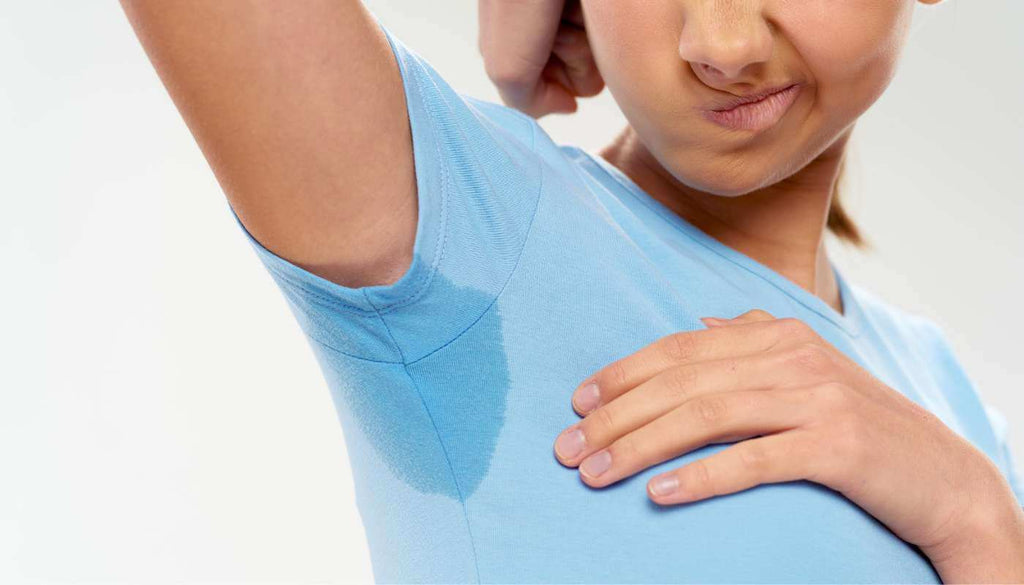
Toxic Beauty - Deodorants
Deodorants and anti perspirants are one of those personal care products you use on autopilot, every single day without much thought. Does it prevent body odour? Yup. Does it stop you perspiring? Yup. OK great, if that's covered then it's back to the hundred and one other things you need to think about. Stop! Think about what's in these products, and what it's doing to your body. Sweating is a natural function of our bodies. We sweat in order to maintain our body temperature and keep us cool, as well as releasing toxins. So it makes sense that if you stop something from working naturally, you’re going to have consequences.
Blocking perspiration and the release of toxins means that we get a build up of toxins, and you end up smelling worse than ever. Then you cover that up with a whole heap of synthetic and toxic ingredients, which you apply to delicate and sensitive skin - your armpits. The smells get worse, and you use more and more deodorant and anti-perspirant to try and fix it.

What's the problem with deodorants?
There are concerns about the possible links between the use of deodorants and breast cancer. Lots of studies have been done, but there's no definitive answer yet that have led to numerous studies exploring the possibility. The jury may be out with a conclusive link, but this study looking at the location of cancers in the breast shows that the number of cancers diagnosed closer to the armpit almost doubled between the '30's and the 90's.
More alarming are studies confirming the presence of aluminium in breast tissue, including a higher content of aluminium on the outside of the breast closer to the underarm. There's evidence in this study that skin is permeable to aluminium when applied as an antiperspirant.
What's in deodorants and anti-perspirants that make them so bad for you?
Aluminium, propylene glycol, parabens and triclosan are the key toxins to watch out for. Like many personal care ingredients, manufacturers argue that the amounts in the products are too small to cause problems. The problem is that the effects of small amounts of toxins over an extended period of time are simply unknown.
What do these ingredients do?
Studies sponsored by major deodorant manufacturers state that aluminium only covers the outside of the skin. This isn't what the cancer prevention journals and dermatologists say. They explain the same process, where aluminium ions are drawn into the cells that line the top layer of the skin, water is drawn in and cells begin to swell, squeezing the ducts closed so that sweat cannot get out.
There are other concerns that aluminium can build up in the nervous system, and there are many consistent studies linking aluminium to ADHD, Alzheimer's disease and Parkinson's disease and breast cancer. The other problem is that many studies only look at the effects of using only one or two chemicals at the same time, not the multitude of chemicals that we're exposed to on a daily basis.
Propylene glycol is a petroleum based penetration enhancer also used to prevent products from drying out, which when paired with harmful chemicals can increase their absorption.
Triclosan is an antibacterial and anti-fungal agent used in many consumer products. It's been linked to fertility issues, birth defects, allergies in children and liver toxicity, as well as contributing to the rise of super bugs.
Parabens are used as preservatives, and there are concerns that they are endocrine disruptors which may interfere with male reproductive functions.
Then there's fragrance. Manufacturers don't have to list ingredients in perfume, as it's considered to be commercially sensitive. There are 3,100 stock chemicals that can be used in perfumes, so how do you know what you're actually buying?
What's the alternative to toxic deodorants and anti perspirants?
Aluminium is an element found practically everywhere - in our drinking water, food and kitchen utensils, pharmaceuticals and more. But it shouldn't be used near the sensitive skin of your armpits and breasts. Fortunately, there are heaps of natural deodorants available these days. Sure, some work better than others, and it might take you a while to find one that you love and that works for you. But when there are so many concerns about the ingredients in standard deodorants, this really is one area of your personal care regime that you need to clean up!
If you're looking for a great range of natural deodorants, check out Hello Charlie's Safer Deodorant Cheat Sheets, and shop here.





